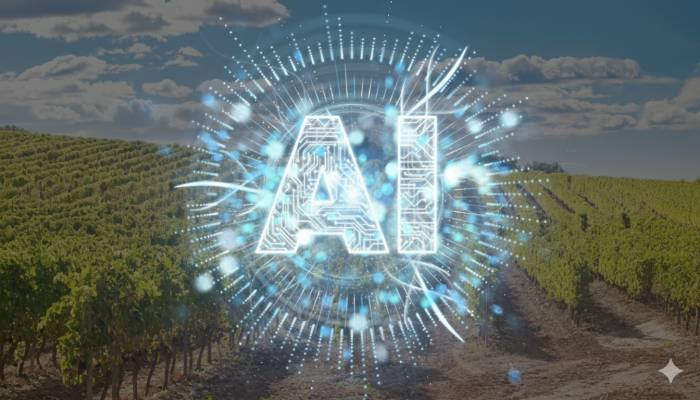Poland’s Wine Industry Embraces Sustainability and Technology Amid Rapid Growth
AI-driven innovations offer new opportunities for environmental stewardship, economic resilience, and community engagement in Polish viticulture and enotourism.
2025-09-09

Poland’s wine industry is experiencing a period of growth and transformation, with sustainability and technology emerging as central themes. A recent study conducted by a team of Polish researchers examines how artificial intelligence (AI) can support sustainable practices in viticulture, wine production, and enotourism. The research, based on a comprehensive survey of registered Polish vineyards, provides insight into the current state of the industry and explores the potential for AI-driven innovation.
The study surveyed 75 vineyards across Poland between May 2022 and February 2023. The questionnaire was distributed to all officially registered vineyards, aiming to capture a full picture of the sector at this early stage of development. The response rate was 24%, which is considered sufficient for sociological analysis in this context.
Environmental sustainability is a priority for many Polish winemakers. Of those surveyed, 77% reported that they actively consider environmental issues in their operations. Common practices include reducing or eliminating crop protection products, using renewable energy sources such as solar panels and heat pumps, managing materials like glass and cardboard more efficiently, and utilizing organic waste from production. Some vineyards also focus on water management and the use of organic or vegan products in winemaking.
AI technologies are being considered as tools to further these efforts. For example, drone-based monitoring systems can assess vineyard health using multispectral imaging, while machine learning models can predict yields and optimize irrigation based on weather forecasts and soil moisture data. AI-driven process control systems can automate fermentation and monitor wine quality through chemical analysis, helping to minimize waste and reduce resource consumption.
Economic sustainability is another key concern. Nearly half of respondents said they frequently take steps to support the local economy by employing local residents, purchasing from local suppliers, and promoting regional products. AI applications in this area include workforce planning tools that match job seekers with wineries, supply chain optimization platforms that connect vineyards with nearby suppliers, and route optimization software that reduces transportation costs for local distribution.
Social sustainability is reflected in strong relationships between vineyard owners and local communities. Most respondents rated their relations with neighbors as good or rather good. Examples of cooperation include sharing equipment, hiring local workers for harvests, partnering with local businesses and organizations, and participating in cultural events. AI-powered platforms could facilitate resource sharing, coordinate volunteer labor, and enhance marketing efforts through customer insights and sentiment analysis.
Enotourism is becoming an important part of the Polish wine industry. About 80% of registered vineyards offer tourist visits, with services ranging from guided tours and tastings to workshops and accommodation. The main benefits cited by winemakers are increased wine sales, brand promotion, additional income streams, and stronger social connections. AI tools such as chatbots can act as virtual sommeliers, providing personalized recommendations to visitors. Predictive analytics can help plan visits by forecasting occupancy rates, while computer vision systems can monitor tourist flows to prevent overcrowding.
Despite these positive trends, challenges remain. The small scale of most Polish vineyards currently supports sustainable practices, but expansion or a shift toward mass production could threaten this balance. Climate change is another concern; while warmer temperatures have enabled the re-emergence of vineyards in Poland, extreme weather events pose risks to future harvests. Adaptation strategies such as cultivating disease-resistant grape varieties and improving water management are seen as essential.
The study notes that most Polish winemakers are not yet using advanced technologies like AI in their daily operations. However, interest may grow as the industry expands and faces new challenges related to scale, climate adaptation, and market demands.
Researchers recommend further studies that include perspectives from residents, local authorities, and tourists to gain a more complete understanding of the industry’s social and economic impacts. They also suggest that long-term ecological monitoring will be necessary to assess the true environmental effects of viticulture in Poland.
The findings highlight the potential for AI to play a significant role in supporting sustainable development within Poland’s wine sector. By optimizing resource use, reducing environmental impact, strengthening community ties, and enhancing visitor experiences, technology could help ensure that growth in the industry aligns with broader goals of environmental stewardship and social responsibility.
This research was supported by funding from Poland’s Minister of Science under the “Regional Excellence Initiative.”
Founded in 2007, Vinetur® is a registered trademark of VGSC S.L. with a long history in the wine industry.
VGSC, S.L. with VAT number B70255591 is a spanish company legally registered in the Commercial Register of the city of Santiago de Compostela, with registration number: Bulletin 181, Reference 356049 in Volume 13, Page 107, Section 6, Sheet 45028, Entry 2.
Email: [email protected]
Headquarters and offices located in Vilagarcia de Arousa, Spain.